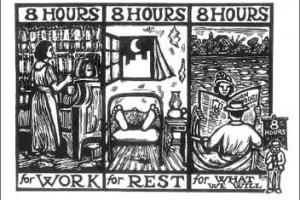Two Billion Dollars in Stolen Wages Were Recovered for Workers in 2015 and 2016—and That’s Just a Drop in the Bucket
Economic Policy Institute
 Given that wage theft disproportionately affects workers from low-income households—who are already struggling to make ends meet—the loss of wages can be devastating. And these recovery numbers likely dramatically underrepresent the pervasiveness of wage theft—it has been estimated that low-wage workers lose more than $50 billion annually to wage theft.
Given that wage theft disproportionately affects workers from low-income households—who are already struggling to make ends meet—the loss of wages can be devastating. And these recovery numbers likely dramatically underrepresent the pervasiveness of wage theft—it has been estimated that low-wage workers lose more than $50 billion annually to wage theft.



Spread the word